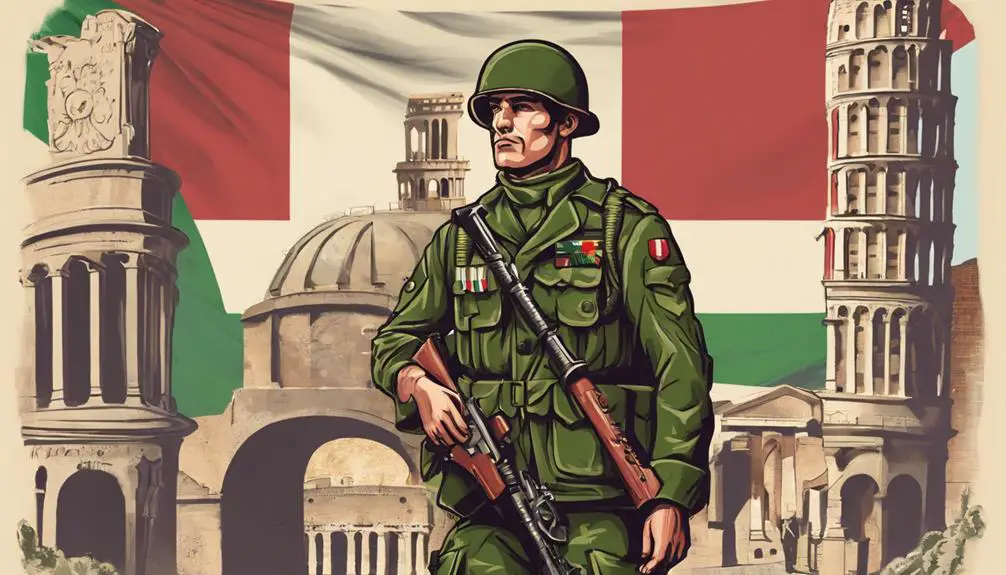You might not know that Italian soldiers have developed a unique slang rooted in their regional dialects, fostering camaraderie and shared identity among troops. On the frontlines, phrases like "Ciapa el sol" and "Fatta 'sta guerra" boosted morale and forged bonds. In the Navy, slang terms like "cassa" for submarine facilitated quick decision-making. Army acronyms and abbreviations enabled efficient communication, while regional dialects added nuanced expressions. This distinct military lingo reflects Italian cultural identity, bridging regional differences. As you explore further, you'll uncover more about the significance of this language in shaping Italian military culture.
Origins of Italian Military Slang
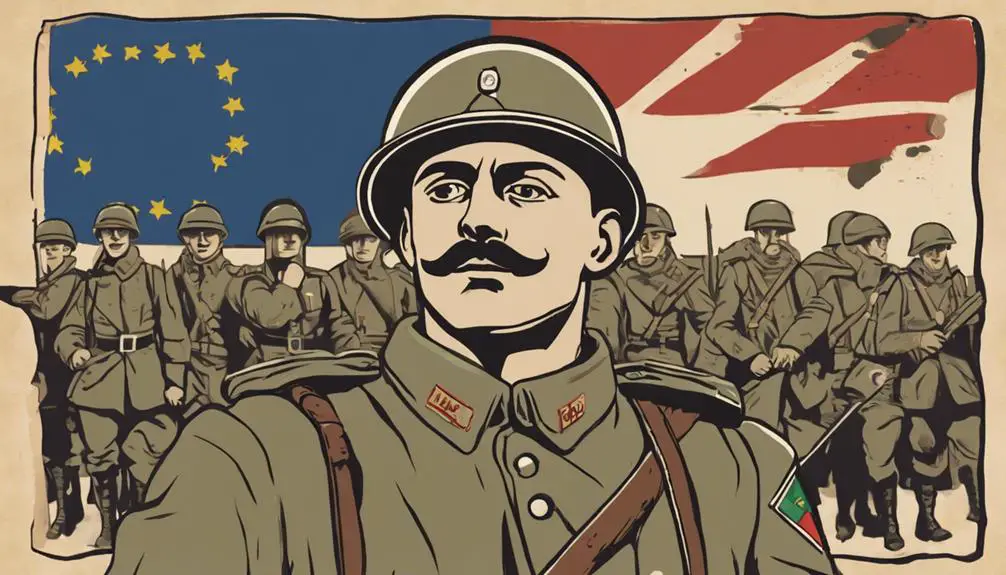
During World War I, you'd often hear Italian soldiers using colloquialisms and slang that were unique to their military culture, but have you ever wondered where these expressions originated? The etymology of Italian military slang is rooted in the country's rich dialectical landscape. Italy's regional dialects, such as Venetian, Lombard, and Sicilian, have long been an integral part of the country's cultural identity. When Italian soldiers from different regions came together to fight, they brought their dialects with them, creating a unique military slang that blended elements from various regional languages.
Italian dialects in military contexts often served as a way to establish camaraderie and shared identity among soldiers. For instance, the Venetian dialect, spoken in the northeastern regions of Italy, was commonly used among soldiers from that area. The Lombard dialect, spoken in the north, also had its own distinct expressions that were adopted by soldiers from that region. As soldiers interacted, they borrowed words and phrases from one another, creating a distinct military slang that was unique to the Italian army.
Common Phrases in the Trenches

As you huddled in the trenches, you'd often hear Italian soldiers tossing around phrases like 'Ciapa el sol' or 'Fatta 'sta guerra,' which, despite being unfamiliar to outsiders, held deep meaning among comrades. These phrases were an integral part of the frontline chatter, a unique language that developed among Italian soldiers during World War I. 'Ciapa el sol' roughly translates to "take the sun," a phrase used to encourage comrades to stay optimistic in the face of adversity. On the other hand, 'Fatta 'sta guerra' means "let's finish this war," a phrase that reflected the soldiers' desire to bring the conflict to an end. Trench humor played a significant role in boosting morale, and these phrases became an essential component of the soldiers' daily lives. By sharing these phrases, soldiers forged bonds and created a sense of camaraderie that helped them cope with the harsh realities of war. As you navigated the treacherous landscape of the trenches, these phrases became a lifeline, providing a glimmer of hope in the darkest of times.
Slang of the Italian Navy
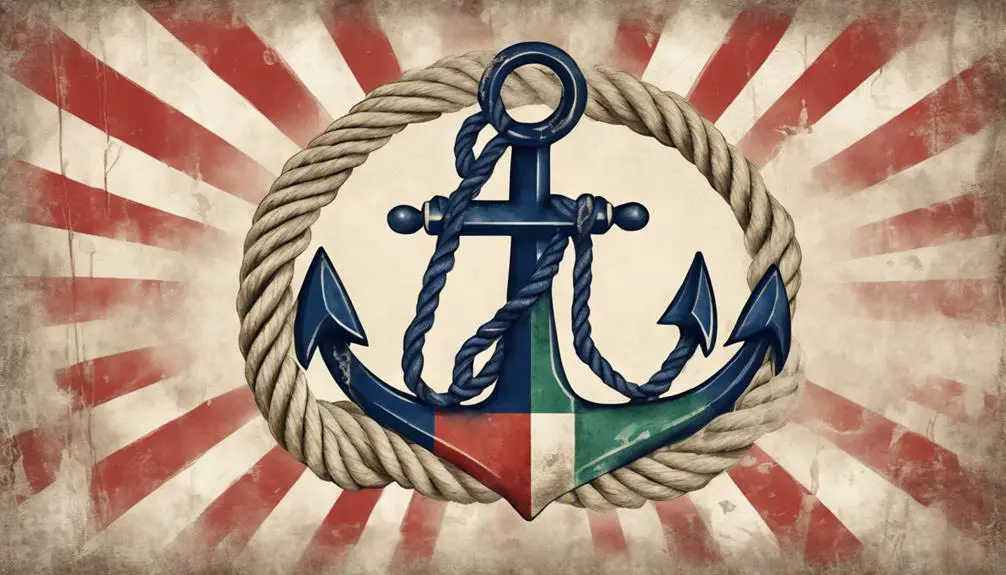
Among the Italian Navy's ranks, you'd often hear sailors tossing around slang terms like 'cassa' for submarine and 'gamba' for a novice sailor, which were essential to the naval lexicon and helped foster a sense of unity among crew members. These colloquialisms, passed down through generations of sailors, created a sense of belonging and camaraderie among naval personnel. Fleet hand signals, for instance, allowed sailors to silently communicate vital information during operations, and Naval non-commissioned officers would often use these signals to direct their teams efficiently. Additionally, the use of slang facilitated quick decision-making and action in high-pressure situations. In the Italian Navy, slang wasn't just a colloquialism – it was a crucial tool for effective communication and teamwork. By embracing these informal terms, sailors could focus on the task at hand, knowing that their comrades understood the nuances of naval operations. As a result, the Italian Navy's slang helped build a strong, cohesive force that could respond swiftly to any challenge.
Army Acronyms and Abbreviations
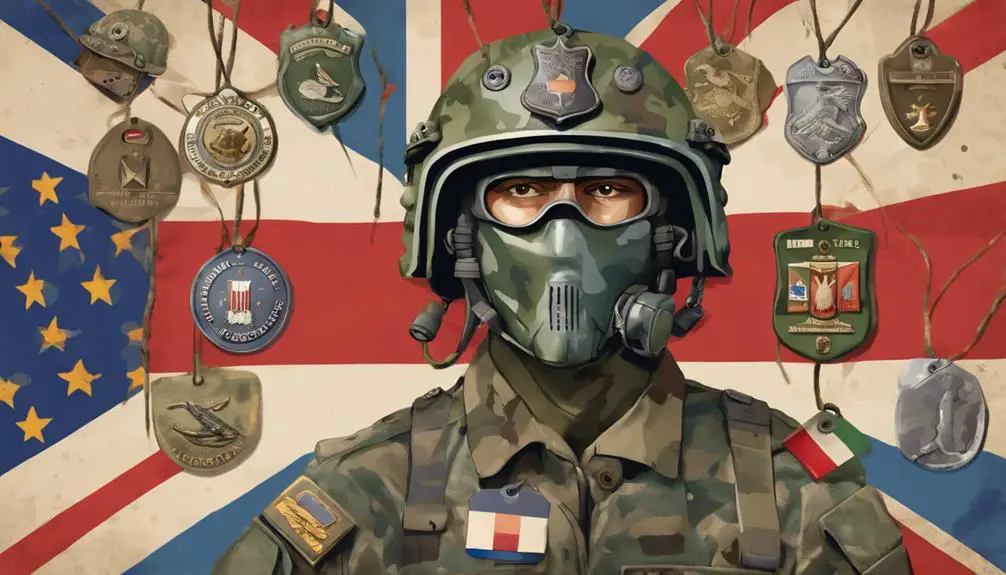
In the Italian Army, you'll frequently come across acronyms and abbreviations that serve as shorthand for complex terms and phrases, allowing soldiers to swiftly communicate critical information in high-stress environments. These codified jargon systems enable efficient communication, reducing the likelihood of communication breakdowns. You'll encounter acronyms like 'ES' for 'Esercito' (Army) and 'FN' for 'Fanteria' (Infantry). Abbreviations like 'COI' for 'Comando Operativo di vertice Interforze' (Joint Operational Headquarters) are also common.
As you navigate the Italian Army's communication systems, understanding these acronyms and abbreviations is vital. Failure to do so can lead to misunderstandings, which can have severe consequences in high-pressure situations. By familiarizing yourself with these codified jargon systems, you'll be better equipped to communicate effectively and avoid potential miscommunications. Remember, in the heat of the moment, every second counts, and clear communication is crucial to mission success.
Regional Dialects in Military Speak
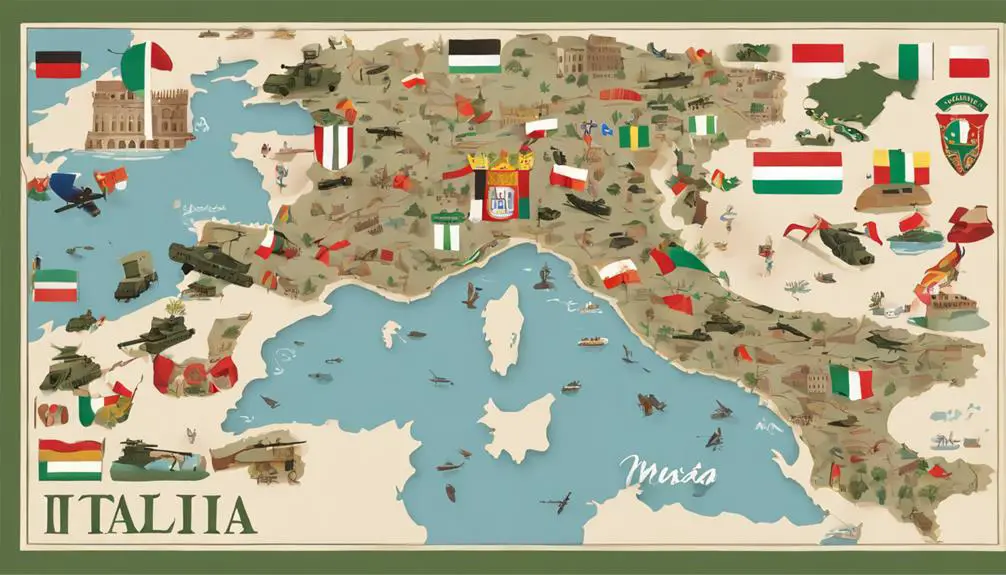
You'll often find that regional dialects permeate military speak in the Italian Army, with soldiers from different regions bringing their unique linguistic flavors to the table. This phenomenon is particularly evident in military zones, where dialectal differences can be quite marked. For instance, soldiers from the north, such as those from Piedmont or Lombardy, may use distinct vocabulary and pronunciation that vary notably from those of their southern counterparts from regions like Campania or Sicily.
Language variations among Italian regions are a key aspect of military communication. In the Italian Army, dialects can influence the way soldiers express themselves, even in formal settings. For example, a soldier from Tuscany might use the phrase 'dacci un mano' (give us a hand) instead of the standard Italian 'dacci una mano.' Similarly, a soldier from Veneto might use the phrase 'xe' instead of 'è' (it is). These dialectal differences can lead to interesting linguistic blends in military contexts, making communication more dynamic and regionally nuanced.
Cultural Significance of Military Lingo
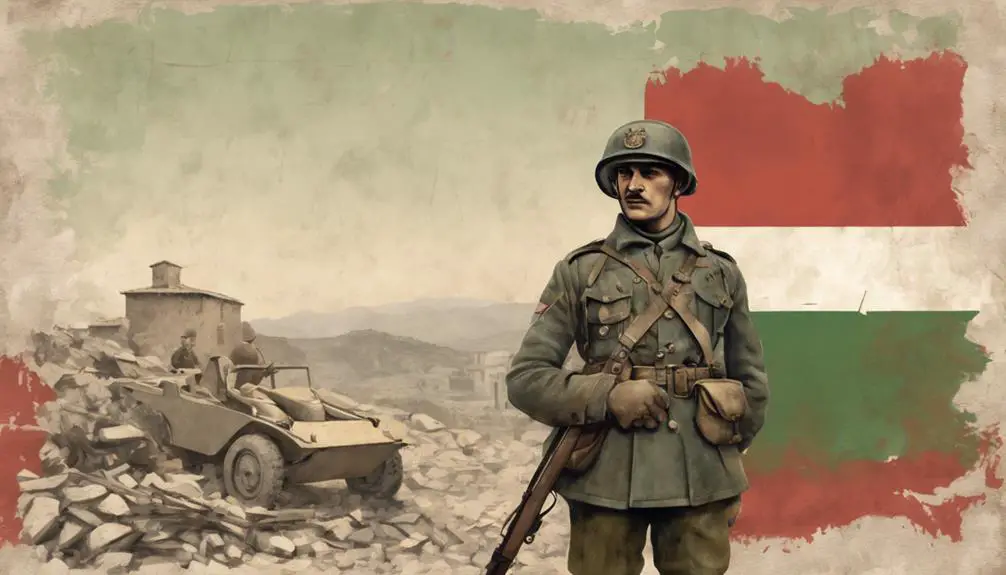
How does military lingo, infused with regional dialects, reflect the cultural identity of Italian soldiers and influence their relationships within the military hierarchy? As you explore the cultural significance of military lingo, you'll discover that it's not just a means of communication, but a reflection of Italian cultural identity. The incorporation of regional dialects into military slang creates a sense of community and shared heritage among soldiers. This unique blend of language and culture fosters a sense of belonging, allowing soldiers to connect on a deeper level.
Language becomes a unifying factor, bridging regional differences and creating a shared cultural identity. Military lingo, in this sense, transcends its functional purpose, becoming a symbol of Italian cultural heritage. It's a powerful tool for building camaraderie and reinforcing a sense of national pride. As you explore further into the cultural significance of military lingo, you'll realize that it's an integral part of the Italian military's cultural fabric, shaping relationships and influencing the way soldiers interact with one another.
Frequently Asked Questions
Is Italian Military Slang Used by All Branches of the Military?
You might think that all military branches use the same slang, but that's not always the case. When it comes to Italian military culture, you'll find that each branch has its own unique terminology. Historically, the Italian military has been divided into distinct branches, each with its own traditions and jargon. While some slang might be shared, each branch has its own distinct flavor, shaped by its historical context and specific role within the military.
Are Italian Military Slang Terms Used in Formal Military Communications?
When you're communicating in official military channels, you're expected to adhere to formal language protocols. In formal military communications, you won't find slang terms used. Official communication channels demand clear, concise language to avoid misunderstandings. Using Italian military slang terms in formal communications is unlikely, as they may be unfamiliar to non-Italian speakers or unclear in written communication. You'll stick to standardized language to guarantee precision and clarity.
Do Italian Military Slang Terms Vary by Military Rank?
You might think that military slang terms are standardized across the board, but surprisingly, they're not. When it comes to Italian military slang, you'll find that terms vary by military rank. Enlisted personnel often use slang influenced by regional dialects, while officers tend to use more formal language. This dichotomy exists because officers are expected to maintain a level of professionalism, whereas enlisted personnel may use colloquialisms to bond with their unit.
Are Italian Military Slang Terms Used in Civilian Life?
You might wonder if colloquialisms born in the military trickle down into civilian life. In Italy, the answer is yes. Italian dialect influence seeps into everyday language, with colloquialism adoption being particularly high. Military slang terms, though initially used in barracks, eventually permeate civilian conversations. This phenomenon is especially true in regions with strong military presence, where the lines between military and civilian life blur. As a result, you'll hear military-bred expressions in casual conversations, adding flavor to Italy's rich linguistic tapestry.
Is Italian Military Slang Used by International Military Forces?
As you explore the use of Italian military slang, you may wonder if international military forces adopt these terms. In the context of Italian military cultural exchange and international military collaboration, it's likely that some terms are shared and adapted. However, the extent of adoption varies, and slang usage often depends on specific bilateral agreements and operational requirements. You'll find that while some terms might be borrowed, they're often modified to fit local linguistic and cultural norms.

